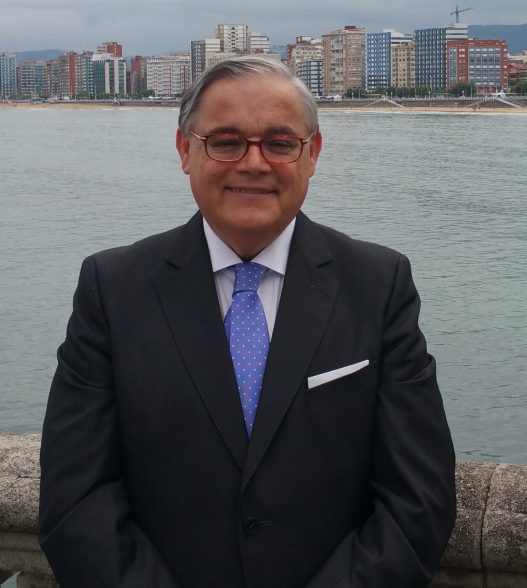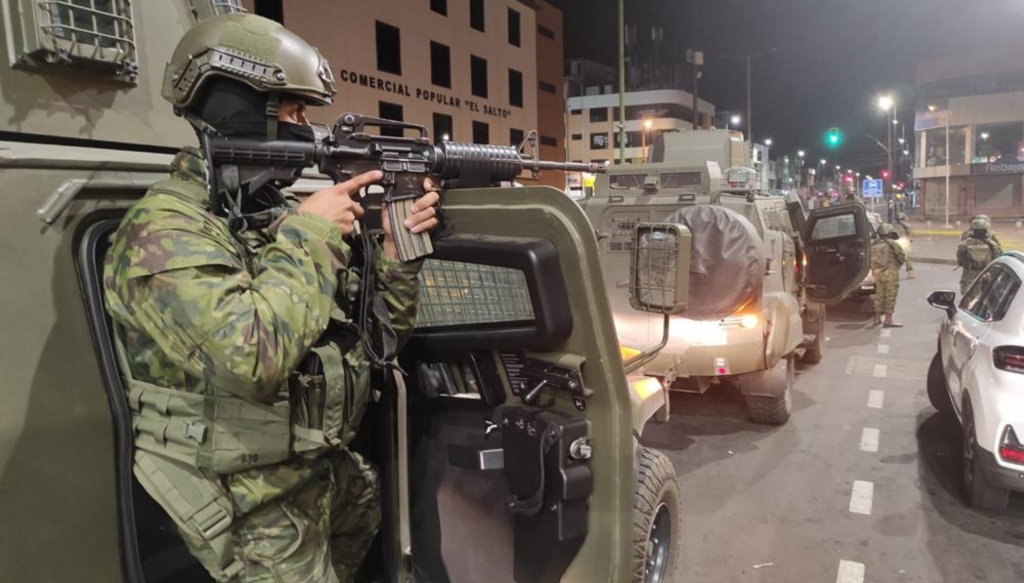ALBERTO BARCIELA
The Tourism Fair is dedicated to the Ibero-American country
FITUR, ECUADOR AND TOURISM AS AN INDUSTRY OF PEACE

There are a number of fundamental factors in tourism demand, first and foremost of which is trust. This affects areas such as physical security -medical, food, climate, etc.-, legal security, security against crime, security on the roads and in transportation or leisure activities, and even economic security -card payments, etc.-.
On the eve of FITUR, we must reflect on the convulsive circumstances on a global scale, changes brought about by digitalization, market developments, destination overcrowding, etc. A traveler is a human being who seeks to know or enjoy a destination with minimum guarantees, quality and attention, and the industry, which some experts like Domènec Biosca and Amancio López Seijas described as the industry of happiness, is what it aims to offer.
It is possible that tourism represents the greatest opportunity for the development of towns. It is the main economic field for many countries and the possibility of reaching levels of development, boosting the creation of wealth and employment, social welfare, modernization and environmental protection, in the most populated places, but also in the most isolated or far away from the industrial poles, promoting local cultures and promoting the recovery of works and artistic spaces, etc.
The sector admits large investors and small family businesses, is transversal in its benefits and, with efficient management, favors the growth of countries, with the resources generated reaching health or education. The demands of investors are minimal, as fair as those of their potential clients, they demand attractiveness, connectivity, security for their investments, clear legislation and weighted taxes, agile borders, skilled labor and little else.
The task of governments and the various administrations is therefore well defined: to obtain an administrative, legal, health and infrastructure ecosystem, supervision, promotion, sufficient, stable, reliable, transparent, with local quality products. If possible, they will have to reinforce all this with aid to entrepreneurs, large and small, local and foreign. And, between all of them, they have to reinforce the demands of a public that, as has been demonstrated in the last year, is eager to travel, and wants to experience new offers, even at higher prices.
A safe destination will always be more seductive. On the other hand, instability, uncertainty, produce a rejection in the purchase of a trip, not to mention wars, terrorism, health or climate crises, etc.
The reflection is fostered by FITUR, so well directed by María Valcárcel and her efficient team, in addition to that of IFEMA, with its president of the Executive Committee, José Vicente de los Mozos, at the head, which this year will be dedicated to Ecuador, a beautiful country subjected to criminal gangs, and which has led President Daniel Noboa to acknowledge that they live in an internal armed conflict. The occasion was intended, in the words of its Minister of Tourism, Niels Olsen as “unparalleled opportunity to show the world all the wonders that Ecuador has to offer.” Perhaps today the discourse has to be different, and the effort should be redirected to seek international support that will allow the Ibero-American country to reach the tranquility to forge foundations from which to build its future.
In the same vein, we should ponder the unfortunate opportunity that the conflict between Israel and Hamas represents for religious tourism, especially for Santiago de Compostela, as an alternative to Jerusalem, coinciding with the Roman Holy Year of 2025.
And we will also have to reason about the large agglomerations, such as those that occurred during this Christmas in some of our cities, without forgetting the review of security in order to the thefts considered minor, but certainly uncomfortable for travelers, or fundamental services such as cabs, absolutely deficient at many times and places, the coverage of AVE and wifi on trains and planes, the lack of skilled labor or the regulation of tourist apartments. The forums that HOTUSA, EXCELTUR or CIMET convene in parallel to the fair will be the right place to talk among experts on these issues.
The year 2023 has been a very good year for the industry. It has demonstrated its potential and its ability to readapt, its commitment to intelligent digitalization and environmental protection -duties demanded by Europe, whose aid has not clearly reached the sector-, and to the creation of wealth and employment. This is the right path for the industry, which we hope will continue to contribute to the well-being and peace of the people.
—-
Alberto Barciela, a Spanish journalist, is the vice-president of EditoRed and a member of the Spanish Tourism Board.
This text is for free use. If you use it, please cite the author and EditoRed.


